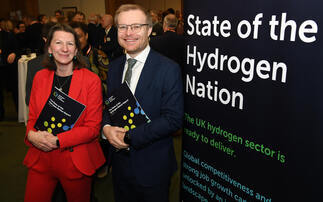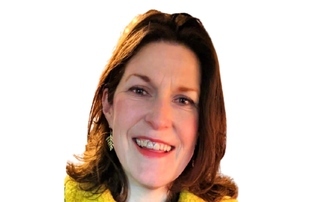WATCH: Podcast Live! participants answer audience questions as they explore what effective, sustainable partnerships look like in practice
Delivering renewable energy projects today requires more than clean technology; it demands collaboration, transparency, and trust. That was the central message from Podcast LIVE!, hosted by BusinessGreen, where industry leaders explored how holistic environmental, social, and governance (ESG) partnerships are transforming the energy sector.
As podcast guest Martin Dowd, energy construction director at Equans UK & Ireland, emphasised, "It's everyone getting on the same plan and heading in the same direction for the success of the project."
Equans has seen firsthand the power of such partnership. At the Sandon Brook Solar Farm in Essex, the company worked alongside Low Carbon to develop a site capable of generating 56MW of solar power, enough to supply around 18,000 homes.
The project demonstrates that ESG collaboration goes beyond good engineering and economics. In fact, in an industry racing toward 2030 net-zero targets, Sandon Brook Solar Farm proves that genuine cooperation from all parties involved can turn solar farms into models of environmental, social, and economic value - with each sustainable project learning from each other to make the next one better.
Speaking on the podcast, Harriet Parker, director of ESG and sustainability at Low Carbon, explained how sustainability and engagement were embedded in the Sandon Brook Solar Farm project from the outset. From early consultation with local authorities and residents that helped address concerns around traffic, flooding, and noise before construction began, through to rewilding, pollinator-friendly planting, and sheep grazing beneath the panels. As a result, biodiversity across the site is expected to increase by 80 per cent.
This collaboration is set to endure for decades. Parker explained that under new Biodiversity Net Gain (BNG) legislation, developers must commit to protecting enhanced ecosystems for at least 30 years. While the panels and equipment will eventually be removed, the biodiversity improvements will remain, leaving the land richer than before.
But the podcast discussion also raised questions about the type of land used for such projects and scale. Questions from the audience included issues such as balancing large-scale infrastructure with local impact, and if it would be possible to create smaller farms closer to consumers on brown field sites, instead of using farm sites that could be used for food production.
Commenting after the podcast, Dowd explained that this is exactly what some companies do.
"Some companies install a smaller sized solar farm and have a private wire connection to their business to contribute to their electricity demand, and any excess can be stored in batteries or exported to the grid," he said. "However, such is the growing need for clean renewable electricity, larger utility scale solar farms are required to help meet the national demand of electricity. To meet our UK targets it would mean using less than one per cent of the land mass in the UK."
Crucially, most farmland used for solar can continue supporting agriculture: sheep grazing between rows of panels remains a common practice, demonstrating how energy and farming can coexist sustainably.
Both guests agreed that sustainability communication must become more inclusive, offering practical tools and examples that smaller organisations can adopt without heavy bureaucracy or cost. Especially as some members of the audience questioned whether there is a growing reluctance to invest in ESG.
In a shifting political climate, Dowd reflected on the broader purpose of ESG: "Some may view it as additional cost they could do without, but there is no doubt the growth of ESG is of upmost importance to investors, developers, EPC contractors & end users. For those who are paying attention to the needs of everyone involved, there is no choice but to engage with ESG and embrace it."
As Dowd put it, success depends on everyone "heading in the same direction". And as Sandon Brook Solar Farm proves, that direction is toward a greener, fairer, and more sustainable energy future built better together.
This article and podcast were sponsored by Equans UK & Ireland.







